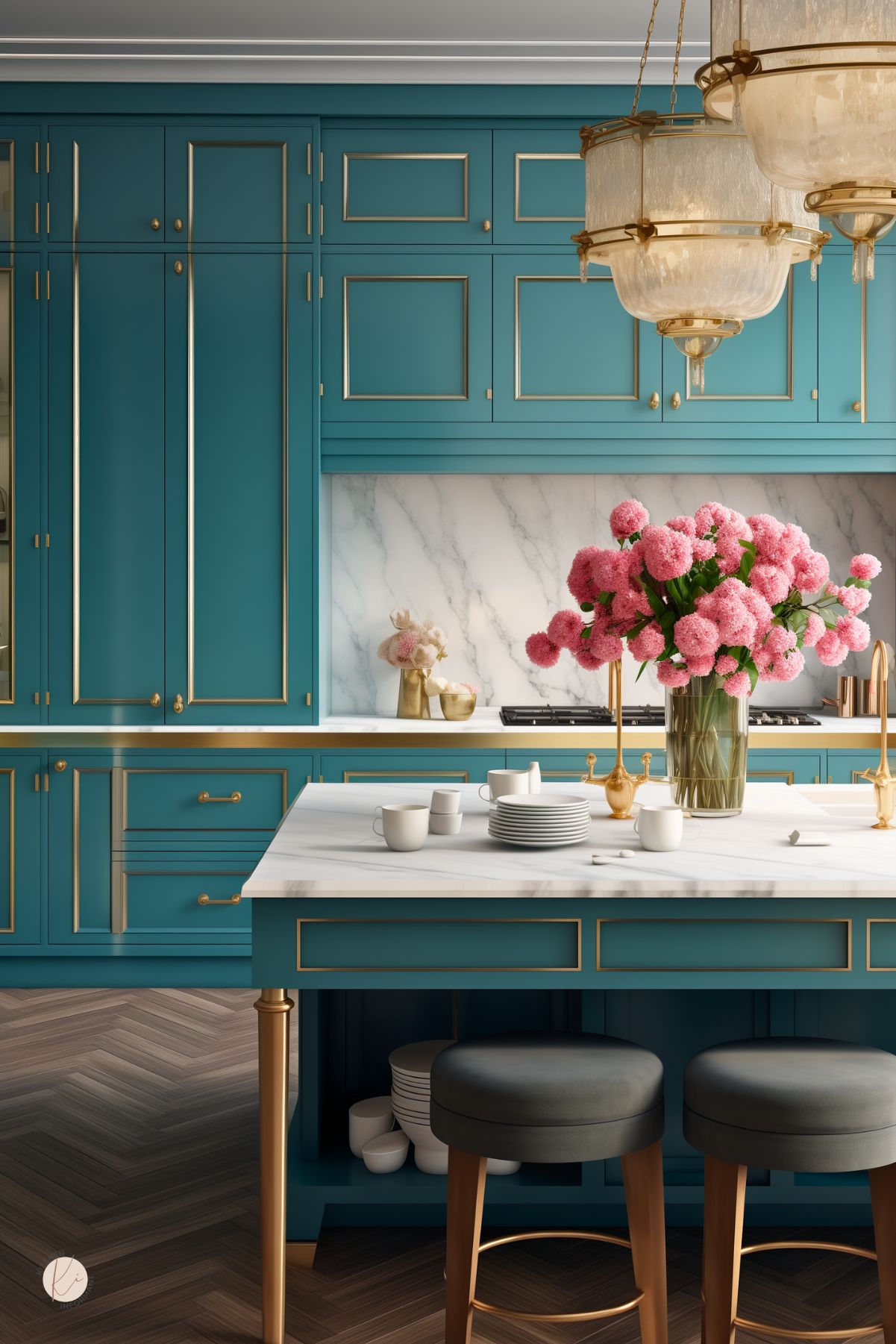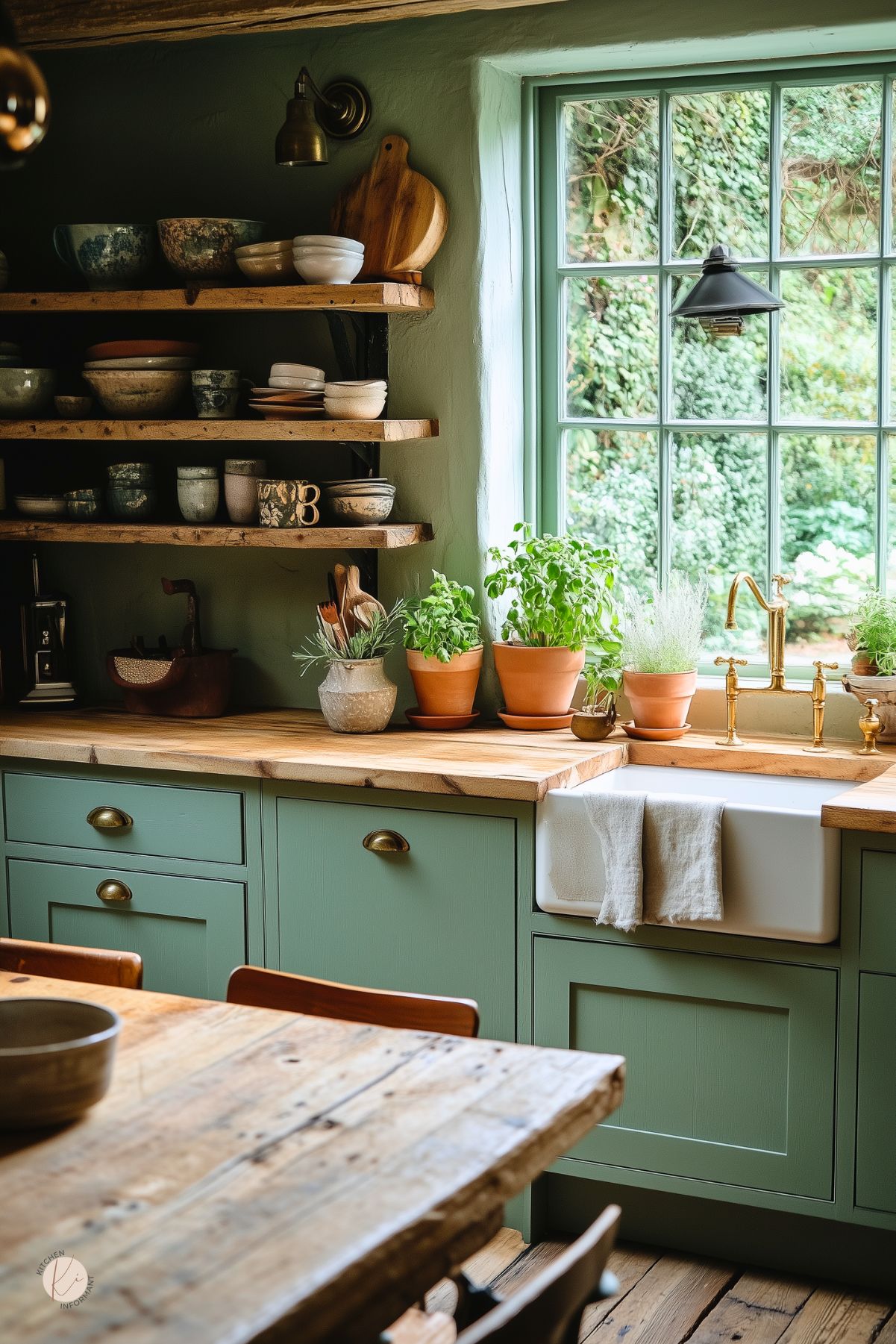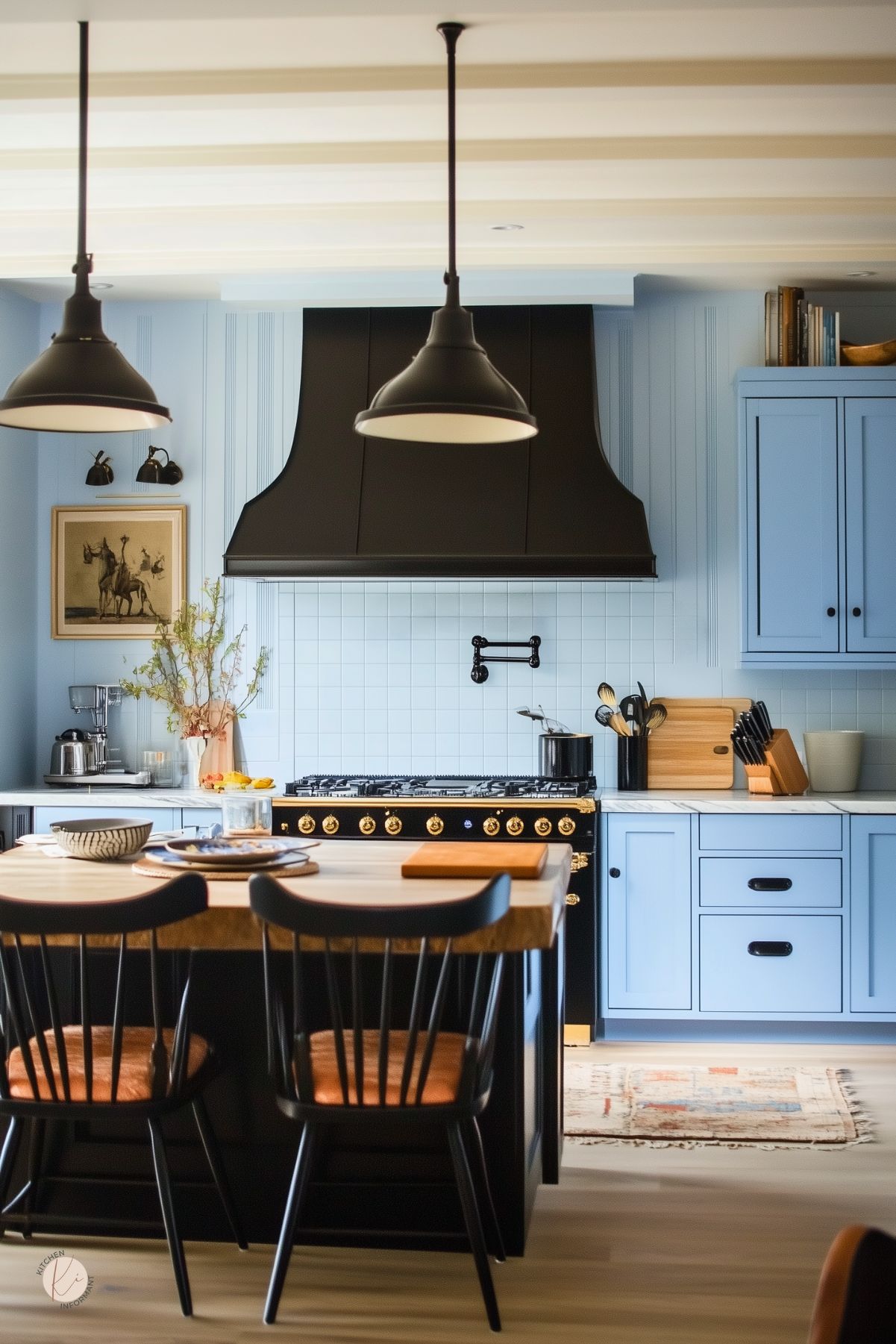A modern kitchen island can transform a space into a functional and stylish centerpiece.
It provides extra storage, additional workspace for meal prep, and a gathering spot for family and friends.
Many homeowners are now looking for ways to blend practicality with pleasing design. A well-chosen kitchen island can meet both needs.

With various styles and materials available, from sleek wood finishes to contemporary metal designs, there is a kitchen island to suit every taste.
They can also offer unique features, such as built-in seating or clever storage solutions, making them more than just a pretty piece of furniture.
As kitchen islands continue to gain popularity, understanding their benefits and design options is crucial.
This article explores modern kitchen island ideas that can elevate any kitchen, providing inspiration for those ready to create their dream gathering space.
The Evolution of Kitchen Islands

Kitchen islands have transformed greatly over the years. Originally, they served as large, sturdy tables for food preparation or dining.
In the early days, kitchen islands were primarily functional. They provided enough space for meals to be prepared, allowing cooks to work efficiently.
As home design evolved, so did the role of kitchen islands. They became key places for family gatherings, adding seating options that replaced traditional dining tables. The trend of incorporating seating into kitchen islands continues to grow.
Today, they often include features like:
- Built-in appliances: Many islands now house dishwashers or cooktops.
- Storage options: Drawers and cabinets provide easy access to kitchen items.
- Custom designs: Styles range from sleek modern finishes to rustic wooden designs.
The kitchen island is now a central feature in modern kitchens. It reflects personal style and practical needs, making it a must-have for many homeowners.
Its evolution highlights the shift from purely functional furniture to a versatile centerpiece that enhances both cooking and socializing.
Designing Your Modern Kitchen Island

When designing a modern kitchen island, it is essential to consider size, shape, materials, color, and texture.
These elements can greatly enhance both functionality and style, creating an inviting space for cooking and gathering.
Size and Shape Considerations
The size of the kitchen island should fit well within the kitchen space.
A small island may measure around 36 inches by 60 inches, perfect for compact kitchens. A larger island can be 4 to 10 feet long, offering more prep and casual dining space.
The shape is also crucial. Rectangular islands are popular for larger kitchens, while square or round options can work well in smaller areas. A U-shaped island can provide additional seating and storage.
It’s important to ensure there is at least 42 inches of clearance around the island for easy movement. This space helps keep the kitchen functional and comfortable.
Material Selection
Choosing the right materials is vital for durability and aesthetics.
Common materials for modern kitchen islands include quartz, granite, and marble for countertops.
These surfaces are not only stylish but also easy to clean and maintain.
For the base, materials like wood or metal can complement the countertop. Wood adds warmth, while metal can give a sleek, modern look.
It’s also essential to consider the finish. Matte finishes are trendy, reducing glare and fingerprints, while glossy finishes can enhance vivid colors. The right combination of materials can really elevate the look of the kitchen island.
Color and Texture Trends
Color plays a significant role in modern kitchen design.
Neutral tones such as whites, grays, and beiges remain popular, providing a clean backdrop. Adding a pop of color, like a deep navy or rich green, can create a stunning focal point.
Texture also matters.
Combining smooth surfaces with textured finishes like reclaimed wood or stone can add depth. Such contrasts make the island visually interesting.
A well-designed kitchen island with thoughtful color and texture choices can draw guests’ attention and enhance the overall ambiance of the kitchen.
Functionality Features

Modern kitchen islands offer various features that enhance usability and style. This section explores essential aspects like storage solutions, integrated appliances, and seating areas that turn an island into a multifunctional space.
Storage Solutions
Modern kitchen islands can incorporate multiple storage options.
Drawers are a popular choice. They provide easy access to cooking tools and utensils. Many islands feature deep drawers, perfect for pots and pans.
Cabinet Doors can also serve as hidden storage. Some designs offer pull-out shelves for convenience.
Open Shelving is another attractive option. It creates a stylish display for cookbooks and decorative items.
With smart organization, the island minimizes clutter and enhances kitchen efficiency, making cooking and entertaining more enjoyable.
Integrated Appliances
Integrating appliances into the kitchen island offers convenience and a sleek design.
Many islands come equipped with built-in cooktops and ovens. This layout allows for seamless cooking and interaction with guests.
Under-Counter Refrigerators are also popular. They provide a space-efficient way to keep ingredients handy while cooking.
Dishwashers can be tucked into the island, keeping kitchen workflows efficient.
All these integrated options help maintain a streamlined look while maximizing functionality, allowing cooks to focus on their culinary creations.
Seating and Dining Areas
Incorporating seating into the kitchen island makes it a hub for family and friends.
Bar stools or counter-height chairs fit perfectly under the island overhang. This setup encourages casual dining or socializing while preparing meals.
Design Variations allow for different seating arrangements. Some may choose a circular layout, while others prefer a straight line.
Adding a small dining area can transform the island into a multi-purpose space. This feature makes it easy for guests to enjoy food and drinks without feeling isolated from the kitchen activity.
Seats that can be tucked away keep the walkway clear when not in use, making it both practical and stylish.
Lighting and Electrical Setup

Effective lighting and electrical setup are essential for a modern kitchen island.
Proper illumination enhances functionality and creates a welcoming atmosphere.
Thoughtful placement of lights and power sources contributes to a safe and efficient kitchen space.
Pendant Lights and Chandeliers
Pendant lights and chandeliers are popular choices for kitchen islands.
These fixtures provide both task and ambient lighting.
When selecting pendant lights, they should hang 30 to 36 inches above the countertop. This height allows for adequate light while not obstructing views.
Using multiple pendants can create a striking visual.
A good rule is to space them evenly, ensuring the total width of the fixtures occupies about two-thirds of the island’s width.
For added style, consider varying shapes and materials. A hand-woven fixture can add character, while a modern sputnik chandelier may enhance a contemporary look.
Under-cabinet Lighting
Under-cabinet lighting is another practical choice that enhances workspace functionality.
This type of lighting brightens the countertops without creating harsh shadows.
LED strip lights or puck lights are popular for their slim profiles and energy efficiency.
Installation should be done carefully to ensure even lighting.
It’s best to place the lights toward the front edge of the cabinets. This positioning reduces glare and uplifts the overall aesthetic.
Dimming options can also be included for adjustable brightness during different tasks.
Power Outlets and Charging Stations
Having enough power outlets is crucial for a modern kitchen island.
Electrical needs can vary from small appliances to charging devices.
Strategically placed outlets can enhance convenience and safety.
Consider installing outlets on the island itself and along the walls nearby. Adding USB charging stations can also be a practical choice, allowing easy access for devices.
Make sure all outlets are installed according to local electrical codes to ensure safety.
Innovative Technology Integration

Modern kitchens increasingly incorporate technology to enhance functionality and convenience.
This integration transforms kitchen islands into hubs for smart home features and user-friendly tech solutions.
Smart Home Connections
Smart home technology has become essential for kitchens.
Kitchen islands can now feature built-in smart home systems that connect appliances, lighting, and even security systems.
Key Features:
- Voice Control: Users can manage functions through voice commands.
- App Integration: Kitchen islands can link with apps for remote operation of appliances.
- Energy Monitoring: Smart systems provide feedback on energy use, helping to reduce costs.
These features make managing household tasks easier and create a more connected home environment.
Built-in Screens and Docking Stations
Built-in screens on kitchen islands serve multiple purposes.
They can display recipes, videos, or even control music. Docking stations for devices make charging easy while cooking.
Benefits:
- Recipe Display: Users can follow recipes hands-free while cooking.
- Entertainment: Integrating screens allows family members to enjoy TV shows or music while at the island.
- Device Charging: Charging slots ensure devices are powered without cluttering the workspace.
This technology not only enhances the cooking experience but also keeps the kitchen organized and functional.
Accessorizing Your Kitchen Island

Accessorizing a kitchen island enhances its functionality and style.
The right choices can turn a practical workspace into a stylish gathering spot. Important elements include seating options, decorative touches, and organizational tools.
Bar Stools and Seating Choices
The right bar stools can make a kitchen island inviting. Adjustable-height stools are great for versatile dining and can suit various island heights.
Look for stools with comfortable padding and back support to encourage long visits.
Materials are also key. Wood offers a warm, classic feel, while metal adds a modern touch. Upholstered stools bring comfort and style but may require more upkeep.
Consider the color scheme when choosing seating. Bold colors can act as a statement piece, while neutral tones provide balance.
Finally, ensure there is adequate space between stools to keep the area comfortable for guests.
Decorative Elements
Decorative elements add personality to a kitchen island. Centerpieces can range from a simple fruit bowl to an elegant vase with fresh flowers.
These touches create a lively atmosphere and make the kitchen feel homey.
Lighting plays a crucial role too. Pendant lights above the island not only provide illumination but also serve as a design statement.
Choose fixtures that complement the overall kitchen theme.
Accent decor, such as stylish cutting boards or cookbooks, can enhance the aesthetic.
Utilizing items that are both attractive and functional makes the space feel interesting without being cluttered.
Organizational Accessories
Keeping a kitchen island organized is vital for ease of use.
Drawer dividers can keep utensils sorted. Meanwhile, decorative baskets can hold smaller items like fruits or snacks.
Magnetic strips are a clever way to store knives or other metal tools. They save drawer space and keep essential items within easy reach.
Additionally, consider using rolling carts as mobile storage solutions.
These can be tucked away when not needed or brought out for extra surface area during meal prep or events.
Creating a tidy space allows for easier cooking and entertaining, making the kitchen island more functional.
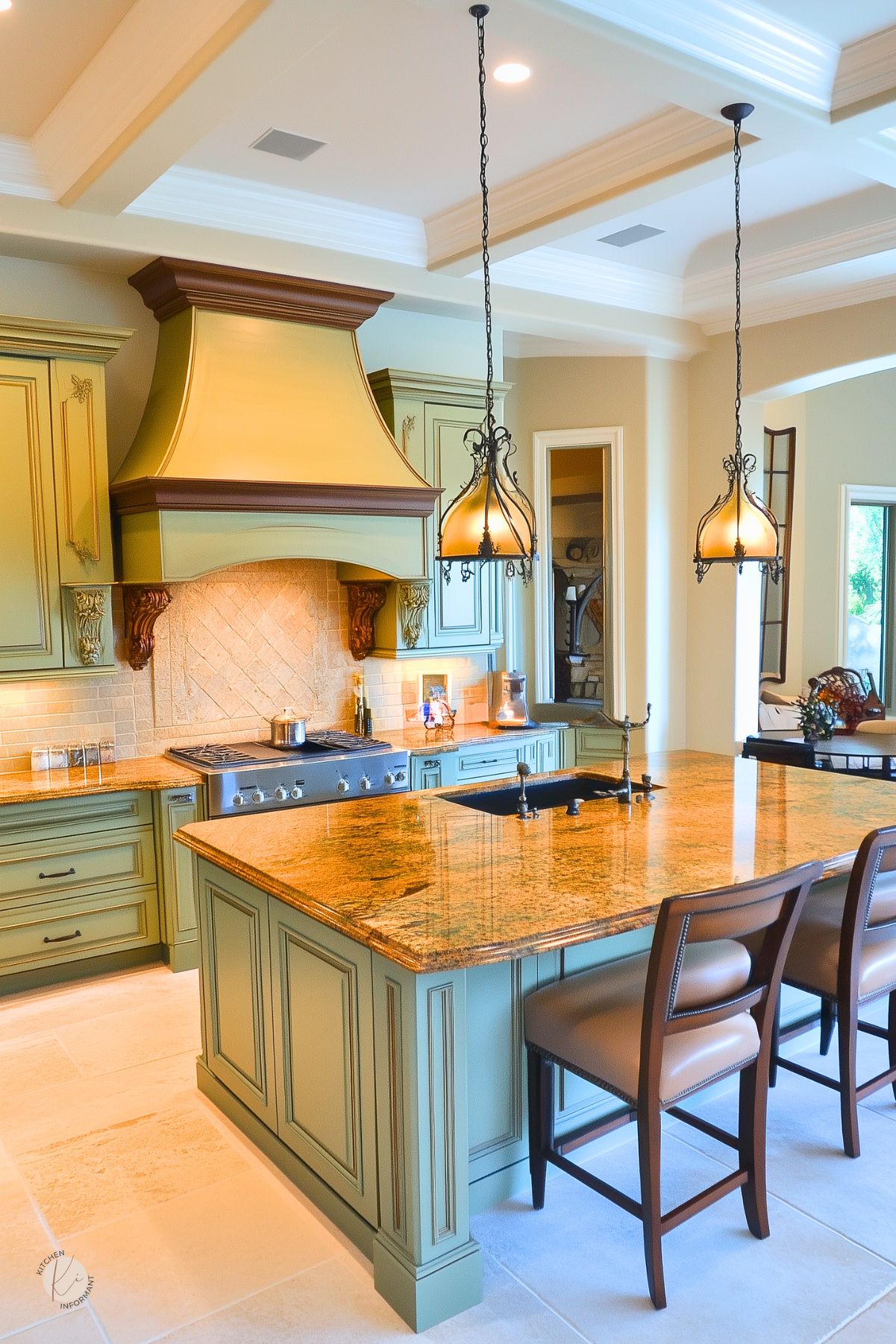


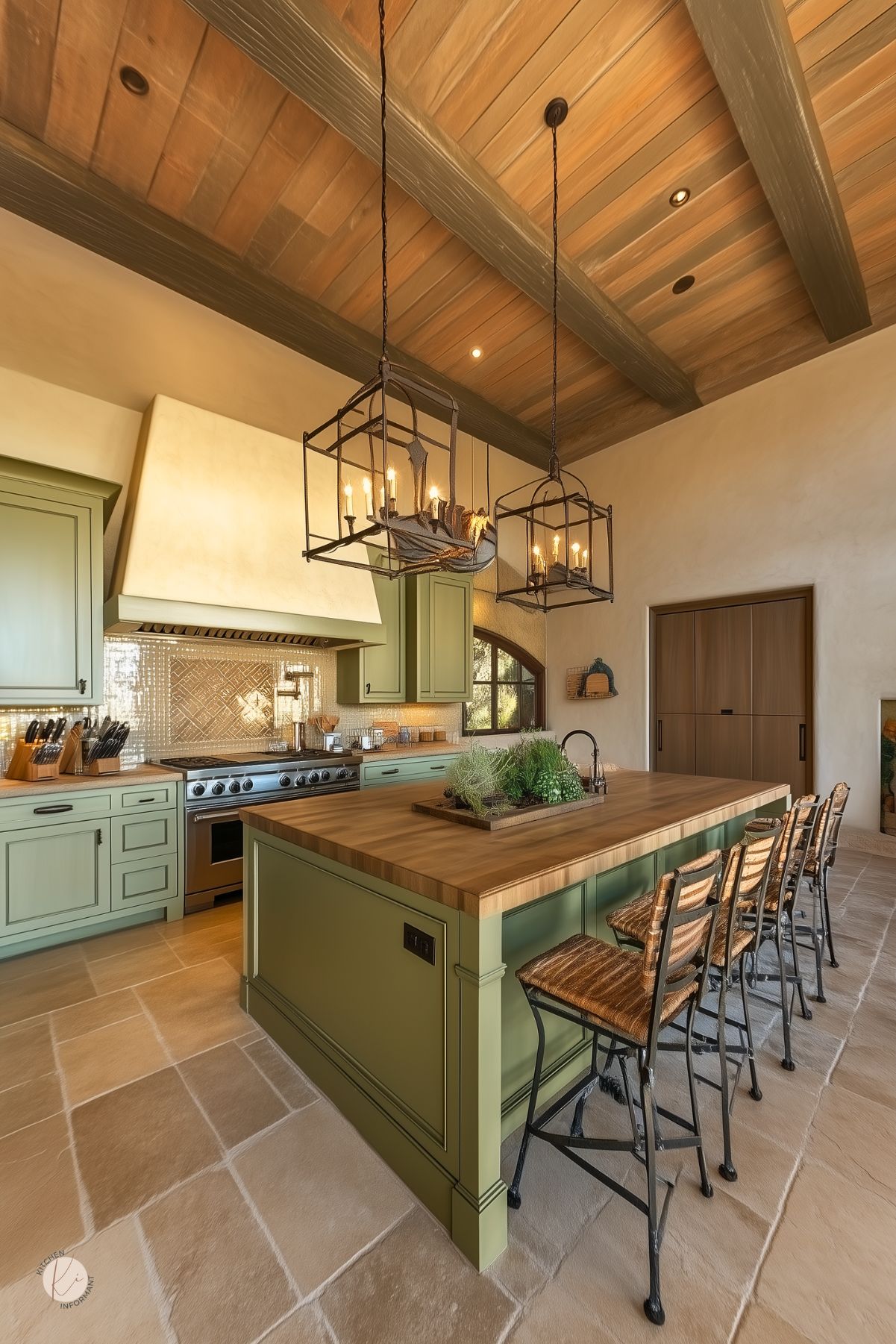
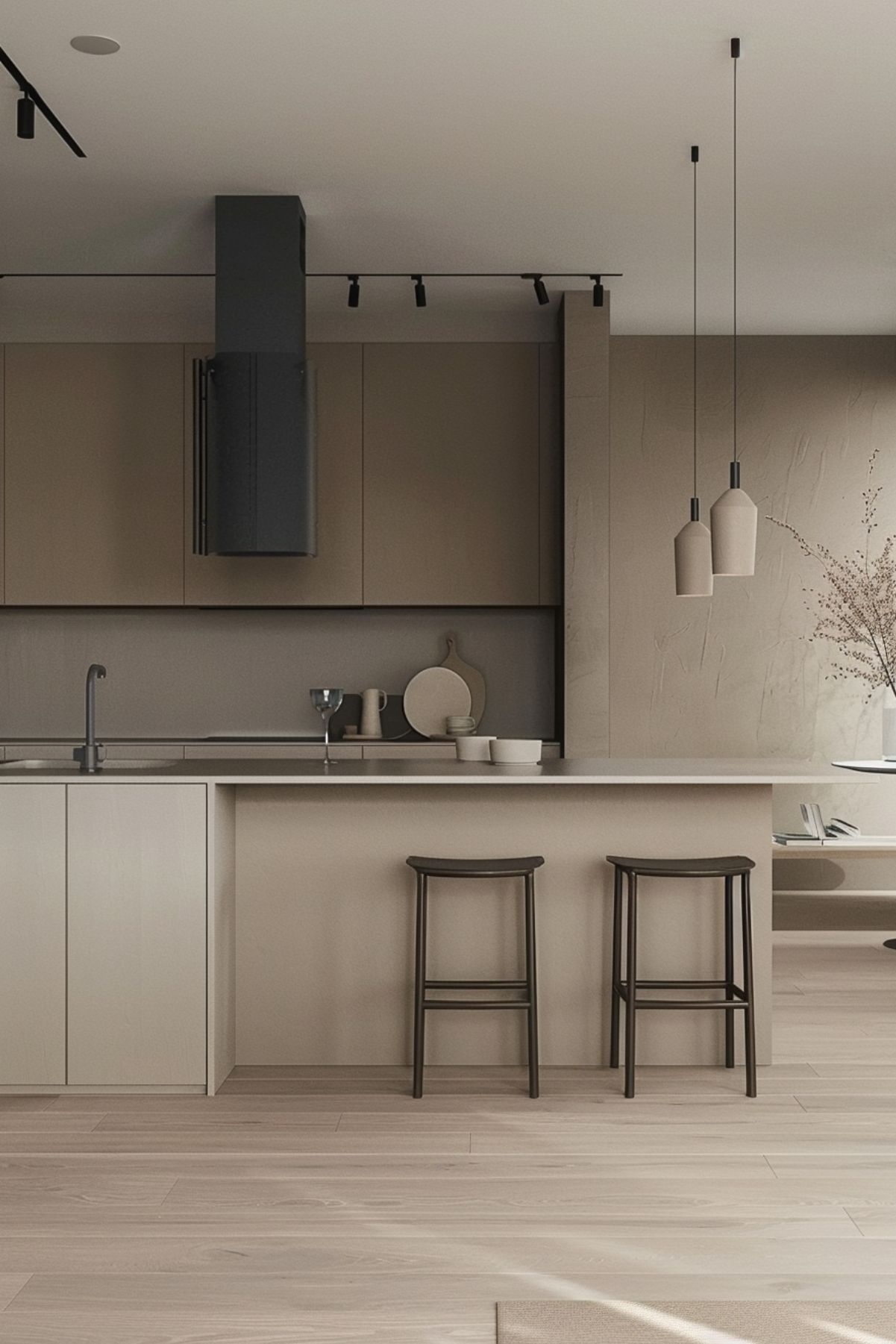






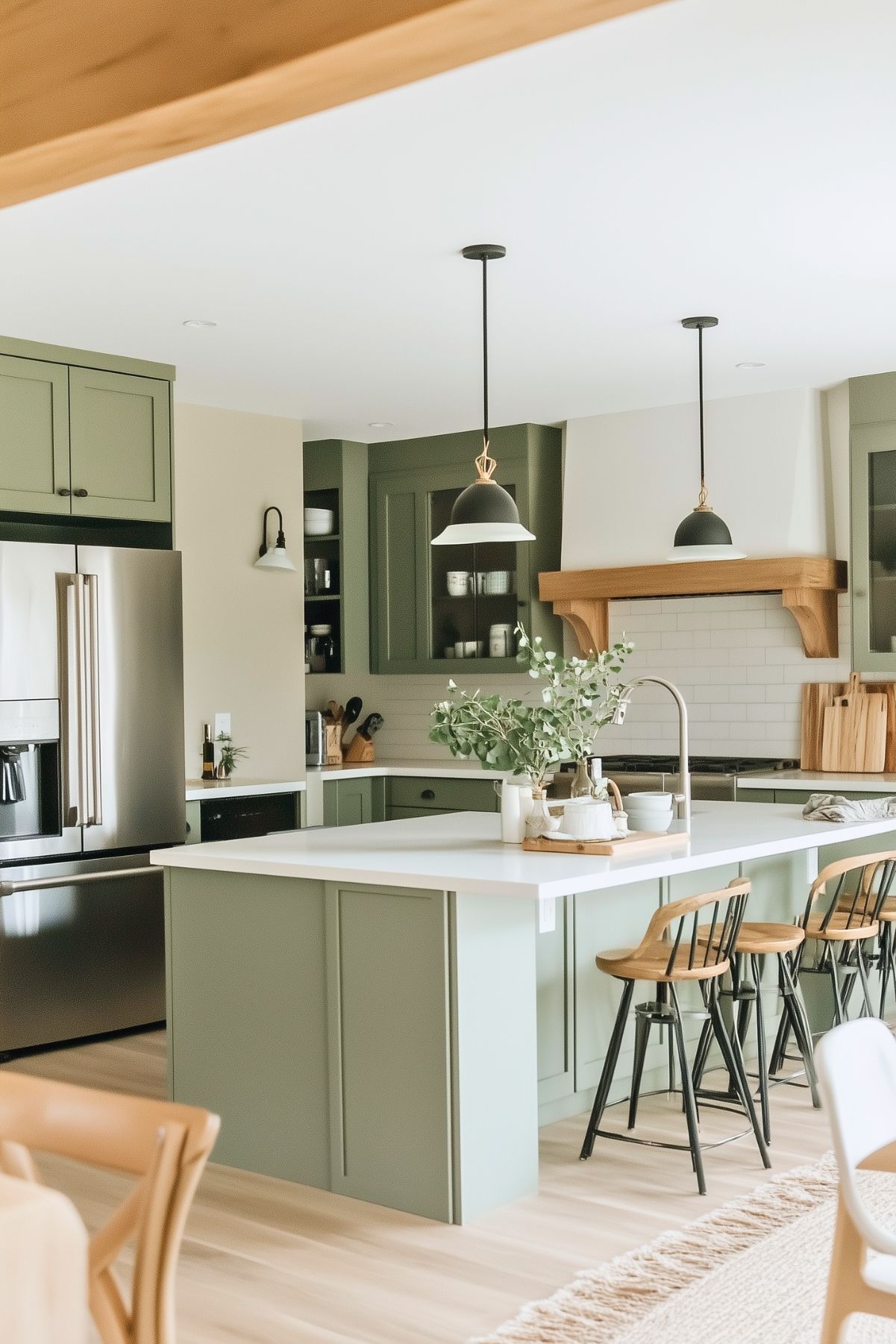


You May Also Like:




